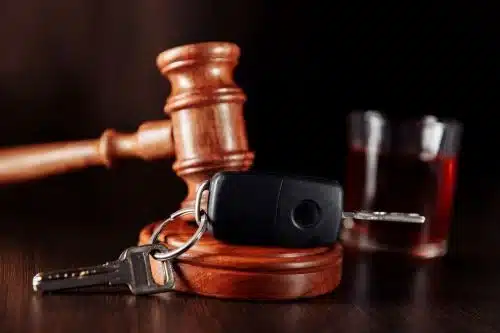
In the early morning hours of February 23, 2019, Officer Nicholas Galinger was inspecting a manhole cover that had water flowing out of it when he was struck by a vehicle. The driver fled the scene. Officer Galinger was rushed to a hospital but died from his injuries. The 38-year-old rookie officer had only graduated from the police academy one month before his death.
The hit and run driver who fled the scene was 57-year-old Janet Hinds who was driving drunk that night. She eventually turned herself in two days later after being placed on the Tennessee Bureau of Investigation’s Ten Most Wanted list.
Ms. Hinds was sentenced to 11 years in prison for vehicular homicide by intoxication in 2022. She was also convicted of leaving the scene of the accident, reckless driving, failure to exercise due care, and failure to maintain a lane. Hinds addressed the court, stating that she didn’t realize there was a person behind the sign she struck. If she had, she never would have fled the scene. The judge agreed that he believed Ms. Hines didn’t intend to kill anyone that night, but she did choose to drive drunk.
Most drunk drivers aren’t intentional killers, but their actions lead to the wrongful death of another. Family members of victims often seek recompense through wrongful death suits, but now, Tennessee families can sue for child support if the deceased has surviving children.
In April of 2022, three years after Officer Galinger’s death, the Tennessee General Assembly unanimously passed a law that would require intoxicated drivers to pay child support if they kill the parents of minor children in a drunk driving accident. The legislation was introduced by Representative Mark Hall.
Mr. Hall was contacted by a Missouri woman named Cecilia Williams helped lawmakers in her state craft a similar piece of legislation after her son and his fiancé were killed in an accident with a drunk driver. That Missouri bill was named after her grandson, Bentley. The new Tennessee Law also honors Bentley, as well as Officer Galinger’s children Ethan and Hailey.
The “Ethan’s, Hailey’s, and Bentley’s Law” will allow Tennessee courts to determine the amount of child support the convicted drunk driver must pay to the children of the deceased on a case-by-case basis. The bill will require the court to set an amount that is both reasonable and necessary to care for the victim’s child until the child turns eighteen. The considerations for each case include:
- The financial needs of the child.
- The financial resources of the child, surviving parent, or guardian of the child, including the state.
- The standard of living to which the child is accustomed.
Since the accident that killed her son, Ms. Williams has been working with legislators in seventeen states to pass similar laws to provide compensation for minor children left without parents due to the actions of a drunk driver. Tennessee was the first state to pass the bill in both houses of government.
Injured in a Drunk Driving Accident? Call the CEO Lawyer Personal Injury Law Firm
Drunk driving accidents are a far too common occurrence and no child should be left orphaned due to the negligent actions of another party. If you or a loved one has been injured in a drunk driving accident, call Ali Awad of the CEO Lawyer Personal Injury Law Firm. Experienced drunk driving lawyers are waiting to answer all your questions and help you fight for the compensation you deserve.
Ali Awad is the founder and managing attorney of the CEO Lawyer Personal Injury Firm. His firm was voted one of the fastest-growing law firms in the United States, beating out 499 firms in 2021. When he isn’t fighting for clients in the courtroom, Ali is engaging with his one million followers on social media, where he gives practical, engaging, and free legal advice. Learn more by finding him online or calling 833-254-2923 to speak with an experienced attorney about your drunk driving accident today.



